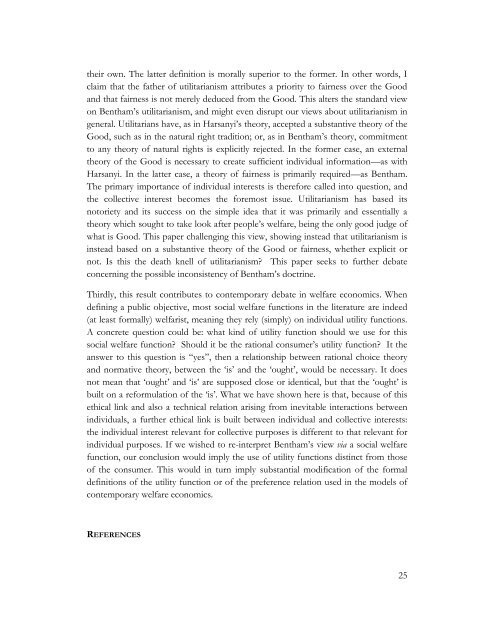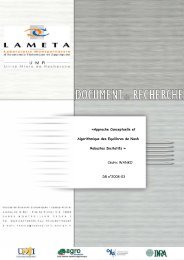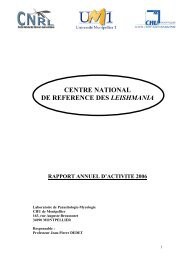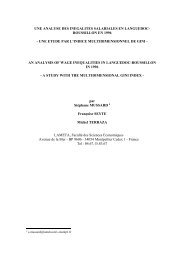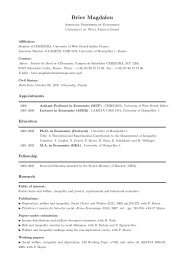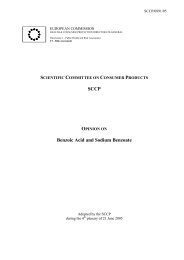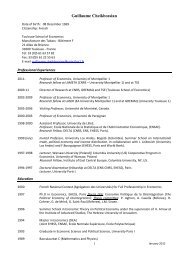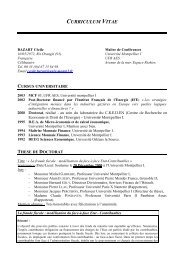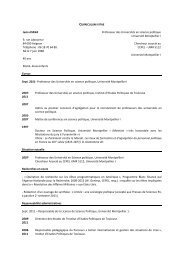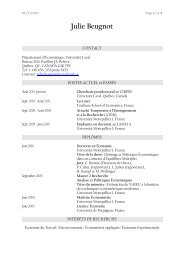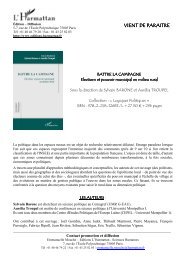COLLECTIVE INTEREST VS - Lameta
COLLECTIVE INTEREST VS - Lameta
COLLECTIVE INTEREST VS - Lameta
You also want an ePaper? Increase the reach of your titles
YUMPU automatically turns print PDFs into web optimized ePapers that Google loves.
their own. The latter definition is morally superior to the former. In other words, Iclaim that the father of utilitarianism attributes a priority to fairness over the Goodand that fairness is not merely deduced from the Good. This alters the standard viewon Bentham‘s utilitarianism, and might even disrupt our views about utilitarianism ingeneral. Utilitarians have, as in Harsanyi‘s theory, accepted a substantive theory of theGood, such as in the natural right tradition; or, as in Bentham‘s theory, commitmentto any theory of natural rights is explicitly rejected. In the former case, an externaltheory of the Good is necessary to create sufficient individual information—as withHarsanyi. In the latter case, a theory of fairness is primarily required—as Bentham.The primary importance of individual interests is therefore called into question, andthe collective interest becomes the foremost issue. Utilitarianism has based itsnotoriety and its success on the simple idea that it was primarily and essentially atheory which sought to take look after people‘s welfare, being the only good judge ofwhat is Good. This paper challenging this view, showing instead that utilitarianism isinstead based on a substantive theory of the Good or fairness, whether explicit ornot. Is this the death knell of utilitarianism? This paper seeks to further debateconcerning the possible inconsistency of Bentham‘s doctrine.Thirdly, this result contributes to contemporary debate in welfare economics. Whendefining a public objective, most social welfare functions in the literature are indeed(at least formally) welfarist, meaning they rely (simply) on individual utility functions.A concrete question could be: what kind of utility function should we use for thissocial welfare function? Should it be the rational consumer‘s utility function? It theanswer to this question is ―yes‖, then a relationship between rational choice theoryand normative theory, between the ‗is‘ and the ‗ought‘, would be necessary. It doesnot mean that ‗ought‘ and ‗is‘ are supposed close or identical, but that the ‗ought‘ isbuilt on a reformulation of the ‗is‘. What we have shown here is that, because of thisethical link and also a technical relation arising from inevitable interactions betweenindividuals, a further ethical link is built between individual and collective interests:the individual interest relevant for collective purposes is different to that relevant forindividual purposes. If we wished to re-interpret Bentham‘s view via a social welfarefunction, our conclusion would imply the use of utility functions distinct from thoseof the consumer. This would in turn imply substantial modification of the formaldefinitions of the utility function or of the preference relation used in the models ofcontemporary welfare economics.REFERENCES25


